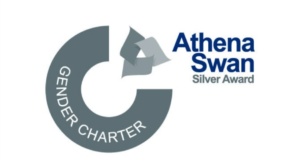Major research investment into national land use transformation to help the UK achieve net zero

Agriculture and land use have a major impact on greenhouse gas emissions
University of Exeter experts are working to bridge the gap between science and policy to achieve net zero as part of a major new research project.
Dr Katharine Earnshaw, Professor Ian Bateman and Dr Christopher Lee are members of a winning consortium of 34 organisations awarded a £6.5m government grant to establish a ‘Land Use for Net Zero’ (LUNZ) Hub.
Experts from research, farming and industry will provide all four UK administrations with the rapid evidence they need to develop policies that will drive the UK land transformation required to achieve net zero by 2050.
The LUNZ hub was launched at an event in Leicester this week. The first-of-its-kind consortium has been established to help governments in England, Wales, Scotland and Northern Ireland address land use and agriculture as a major greenhouse gas emitting sector.
Professor Bateman, an environmental economist, is the lead investigator on the NetZeroPlus project, which examines how tree-planting can remove harmful greenhouse gas emissions from the atmosphere while delivering other benefits.
Dr Earnshaw and Dr Lee are members of the Landscape Decisions programme, which aims to provide evidence to offer better ways to make the complicated choices about how land is used. Dr Lee is an expert in modelling and designing landscape-scale land use change. Dr Earnshaw is an expert in classics and ancient history who is investigating present and future landscape decisions, agricultural ethics, and memory in trees and climate change.
Professor Bateman said: “Emissions from the food system, greenhouse gas removal though forestry and decarbonisation from renewable energy places land use at the centre of net zero strategies. But decision makers need rapid high-quality information to shape policy and the LUNZ Hub is the much-needed centrepin for such advice.”
Dr Earnshaw said: ‘We’re especially excited about the range of subjects and stakeholders working together within the LUNZ hub.”
Dr Lee said: “We think this is essential to turn academic expertise about Net Zero into practical action.”
The “Land Use for Net Zero” (LUNZ) Hub is co-led led by The James Hutton Institute and the University of Leicester, with £6.5 million funding from UK Research and Innovation. Researchers will provide evidence about land use, from renewable energy to soil carbon and green finance, to help drive the land transformations needed to achieve net zero by 2050.
It will also play a pivotal role in helping to communicate more widely the critical importance of land and how it is used as a major carbon sink or source.
Agriculture and land use have a major impact on greenhouse gas (GHG) emissions, as well as a wide range of other environmental, societal and economic outcomes, but progress towards decarbonisation is lagging behind other sectors.
Achieving a transformational change in land management needed will depend on government access to world-class research and innovation and a novel approach to collaboration across a variety of critical stakeholders.
A central strand of the Hub’s approach will be the development of plausible and innovative net zero scenarios and associated pathways – novel tools based on advanced modelling methodologies that can predict the impacts of different policy interventions across a variety of metrics.
The Hub is co-funded by UKRI, the Department for the Environment, Food and Rural Affairs (on behalf of England and Wales), the Department for Energy Security and Net Zero, the Department for Science, Innovation and Technology, and the Scottish Government. It has been co-designed with Defra and the Welsh and Scottish governments. It is funded for 40 months, starting 1 November 2023.



